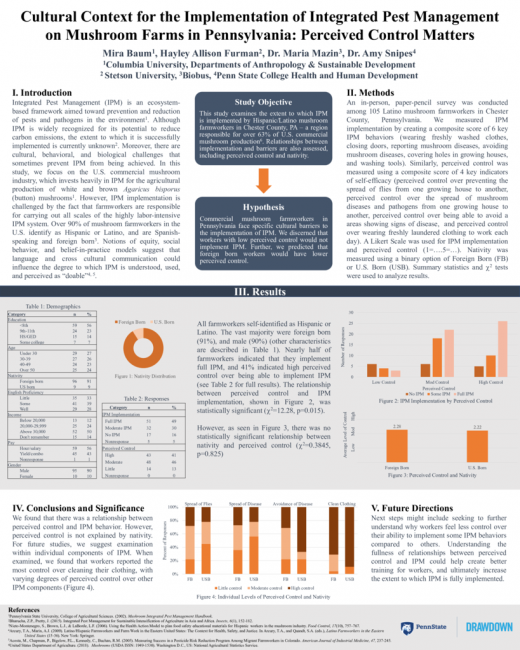Integrated Pest Management (IPM) includes exclusion, biological, and chemical controls that aim to reduce the spread of pests and pathogens. When successful, IPM helps reduce reliance on pesticides to control pests. However, the extent to which IPM is implemented on commercial mushroom farms in Pennsylvania is unknown. Moreover, over 90% of the agricultural mushroom workforce in Pennsylvania is Latino. Relationships between nativity and IPM implementation have not yet been studied. This study examines IPM implementation among Latino mushroom farmworkers. Relationships between IPM implementation and perceived control are also assessed. Finally, this study examines whether these relationships could be explained by workers’ birthplace. Survey data from 105 Latino mushroom farmworkers in Pennsylvania were used to determine demographic attributes, IPM implementation behaviors, and perceived control. Summary statistics and chi-square tests were used to analyze relationships. Results suggest that there is a statistically significant relationship between IPM implementation and perceived control among Latino mushroom farmworkers (χ 2 =12.28, p = 0.015). However, there was no significant relationship between perceived control and farmworkers’ birthplace. The relationship between perceived control and IPM implementation cannot be explained by differences in workers’ birthplace.
Day
Monday Poster Session
Related Conference Themes
Food


